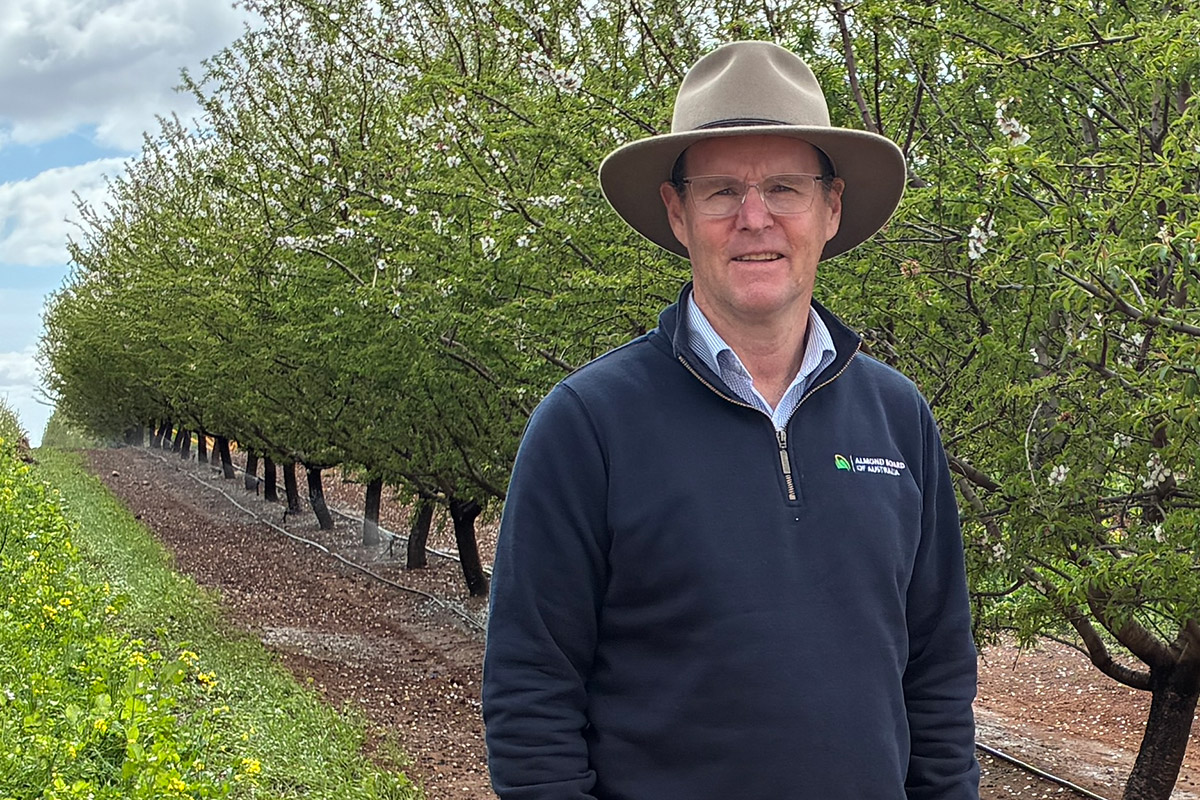SA food industries brace for deadly bee pest impact
South Australian food industries are grappling with the potentially devastating impact of the deadly Varroa mite pest after it was detected in South Australia for the first time.

Almond Board of Australia CEO Tim Jackson said the deadly mite that has been wreaking havoc interstate posed a serious threat to honey bee hives and industries reliant on bees for crop pollination after it was discovered this week in a managed hive near Pooginook in the Riverland.
Jackson told InDaily that the outbreak would have massive impacts on the commercial beekeeping industry, as well as food industries like the almond industry that rely on pollination.
He estimated “one in three pieces” of food South Australians put in their mouths required a bee’s help with pollination to grow.
South Australia’s almond industry is worth more than $250 million alone, and commercial honey bee hives were crucial to its operation.
“We’re almost 100 per cent reliant on honey bee pollination in August where we have 300,000 hives moved into almond orchards in southern Australia to pollinate our crops,” Jackson said.
You might like
The South Australian Department of Primary Industries and Regions (PIRSA) and other state bodies have been collaborating with the Almond Board and other industries since the outbreak first arrived on Australia’s shores in Newcastle in 2022.

There had been an investment of more than $100 million from states and industries in a coordinated National Varroa Mite Management Program, that was designed to minimise the effects and slow the spread of the outbreak.
Jackson explained that the program support had been offered to commercial beekeepers for free over the past 18 months to help equip them with the tools and skills to ensure they could continue to operate in the event of a Varroa mite outbreak.
Stay informed, daily
“Putting in place activities that allowed beekeepers to manage Varroa in the hives was critical for business continuity not only for the beekeepers but also for all the industries that require commercial pollination,” he said.
Food industries that relied on wild honey bees for pollination also could be affected as the mite had the potential to decimate the native population.
“We have one wild beehive per square kilometre up and down the east coast,” Jackson said.
“It’s virtually impossible to control, given that a bee can travel 10 kilometres from its hive and back again.
“A lot of crops that don’t rely on commercial beekeepers may need to do that into the future because the wild honey bee population will be decimated by Varroa.”
PIRSA said Varroa mite was “the most serious pest affecting honey bees worldwide”.
“PIRSA is using border control measures to help prevent varroa mites entering the state. This relies on beekeepers monitoring their hives, maintaining records, and submitting sampling results – see the varroa surveillance map,” it said in an statement.
“We are working with industry groups to promote awareness of risks and preventative measures.
“PIRSA is committed to providing education, training, and awareness packages free to all beekeepers.”
Primary Industries and Regional Development Minister Clare Scriven said while it was unfortunate the Varroa mite had been detected in SA “it was a question of when, not if, it arrived in our state following the national decision that eradication was no longer feasible”.
“A lot of work has gone into delaying the arrival of varroa in South Australia including strict biosecurity conditions for hives entering our state from varroa positive states. These efforts have allowed us time to work closely with South Australian beekeepers to educate and prepare them for its arrival and plan a path forward,” she said.
“Now that varroa is here, we are implementing the plan which focuses on managing it in a way that minimises its impact, while ensuring business continuity for our agriculture and horticulture sectors.
“We will continue to work closely with beekeepers and associated industries as we navigate this challenge, with free support services including access to Varroa Development Officers, education and training sessions.”
Any beekeepers who have kept bees in the buffer area extending 25 kilometres around Pooginook since 25 July 2025, or who intend to do so in the future, are urged to contact the PIRSA Apiary Unit at (08) 8207 7900 or [email protected]









